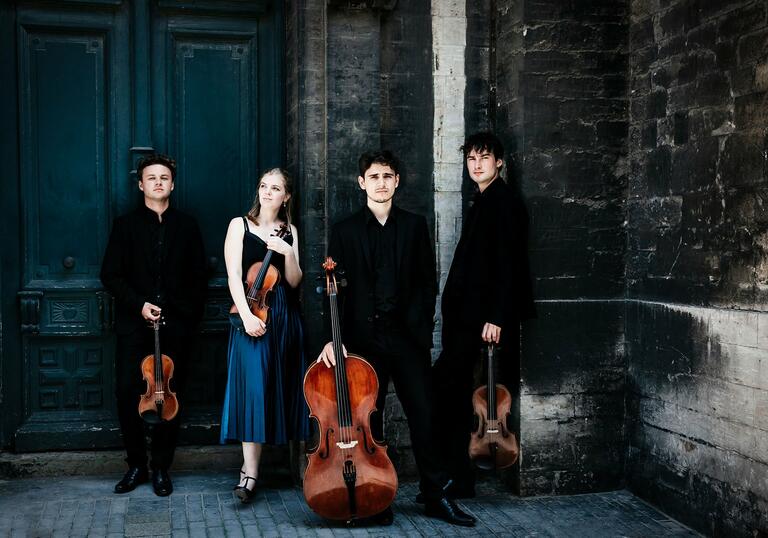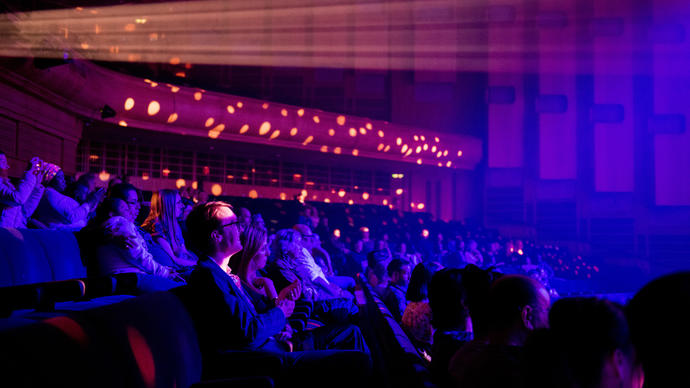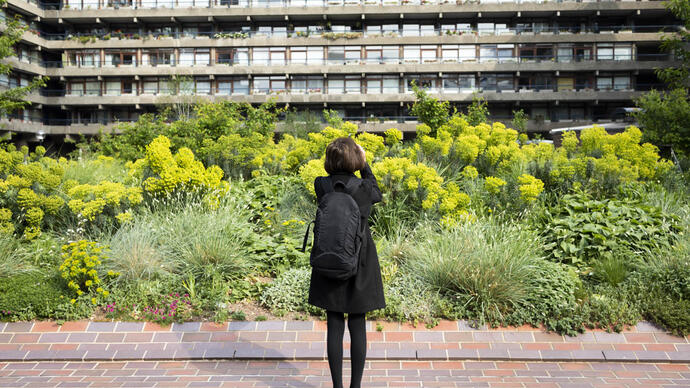
Programme and performers
Seán Doherty String Quartet No 3, The Devil’s Dream
Guillaume Lekeu Molto adagio sempre cantante doloroso
Annelies Van Parys Tsunami (commissioned by ECHO)
Dmitri Shostakovich String Quartet No 8
1. Largo
2. Allegro molto
3. Allegretto
4. Largo
5. Largo
Sonoro Quartet
Sarah Jégou-Sageman violin
Jeroen De Beer violin
Séamus Hickey viola
Léo Guiguen cello
Nominated by BOZAR Brussels
Sonoro Quartet
Founded in 2019, the Sonoro Quartet has already established itself as one of the leading young string quartets of its generation. It performs over 40 concerts annually in countries such as Belgium, the Netherlands, Switzerland, Germany, Hungary and Ireland, making it one of the most active string quartets in Belgium. Its repertoire ranges from classical masterpieces to works by contemporary composers. It has appeared at leading international venues, including Bijloke in Ghent, Bozar in Brussels, Tivoli Vredenburg in Utrecht, Dublin’s National Concert Hall, the Liszt Academy and Bartók Memorial House in Budapest and deSingel in Antwerp.
The quartet has also performed at festivals such as Midis-Minimes, The Young Generation Bozar, B-Classic, Storioni, West Cork Chamber Music and Rotterdam Chamber Music Society, among others.
The quartet is currently an ECHO Rising Star, with performances this season including debuts at the Amsterdam Concertgebouw, Vienna Musikverein, Elbphilharmonie Hamburg, Cologne Philharmonie and Luxembourg Philharmonie. In July last year it made its debut in New Zealand, with an 11-concert tour.
The Sonoro Quartet has recorded for Belgian, Hungarian and German radio stations.
It is currently studying at the Dutch String Quartet Academy in Amsterdam, receiving guidance from renowned artists such as Marc Danel and Gilles Millet (Quatuor Danel) and Eberhard Feltz. The musicians have also received lessons from Gary Hoffman and Heime Müller, founder of the Artemis Quartet.
In 2021 it received third prize and two special prizes at the Bartók World Competition for string quartets in Budapest.

Our Patrons and supporters
Find out about our Patrons, who help us keep our programme accessible to everyone and allow us to continue investing in the artists and communities we work with.
Love the arts? Become a Patron to engage more closely with our programme.

Who we are
Meet our management team, our Board and the Trustees of our charitable arm, Barbican Centre Trust.
